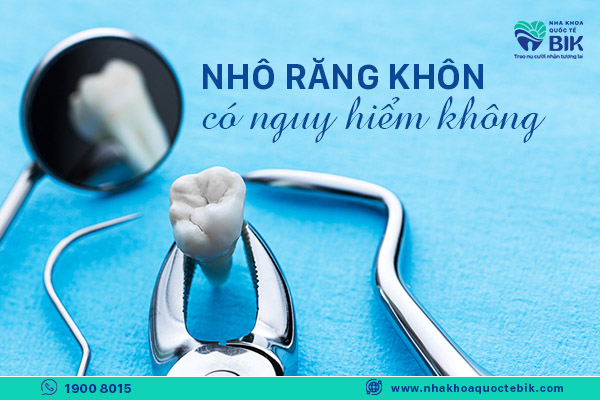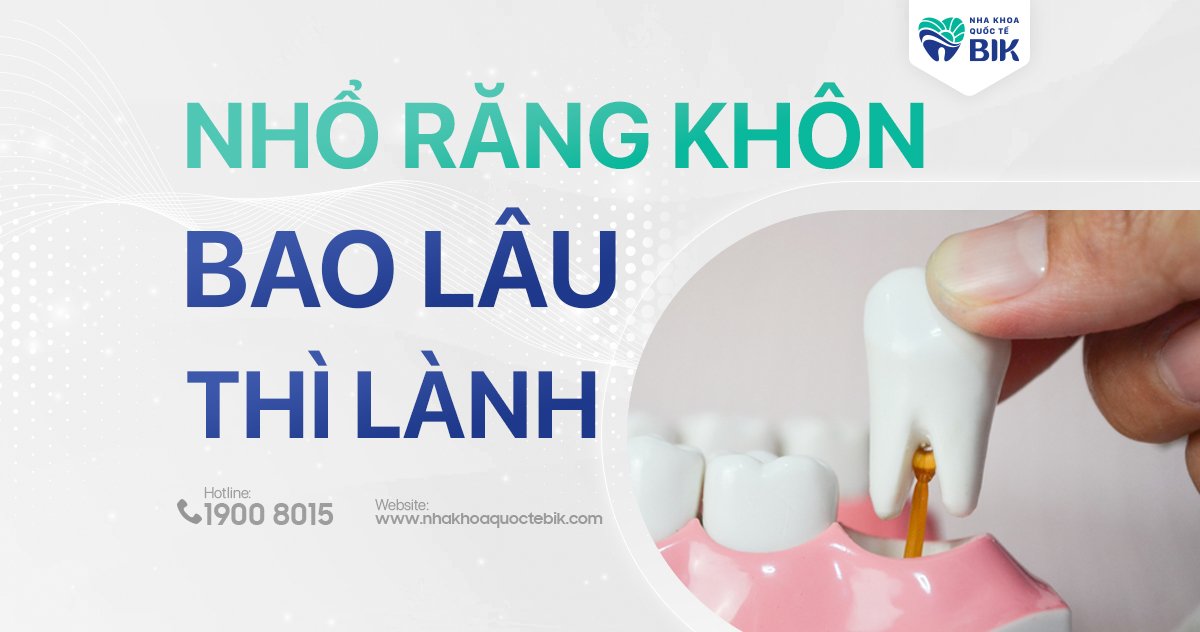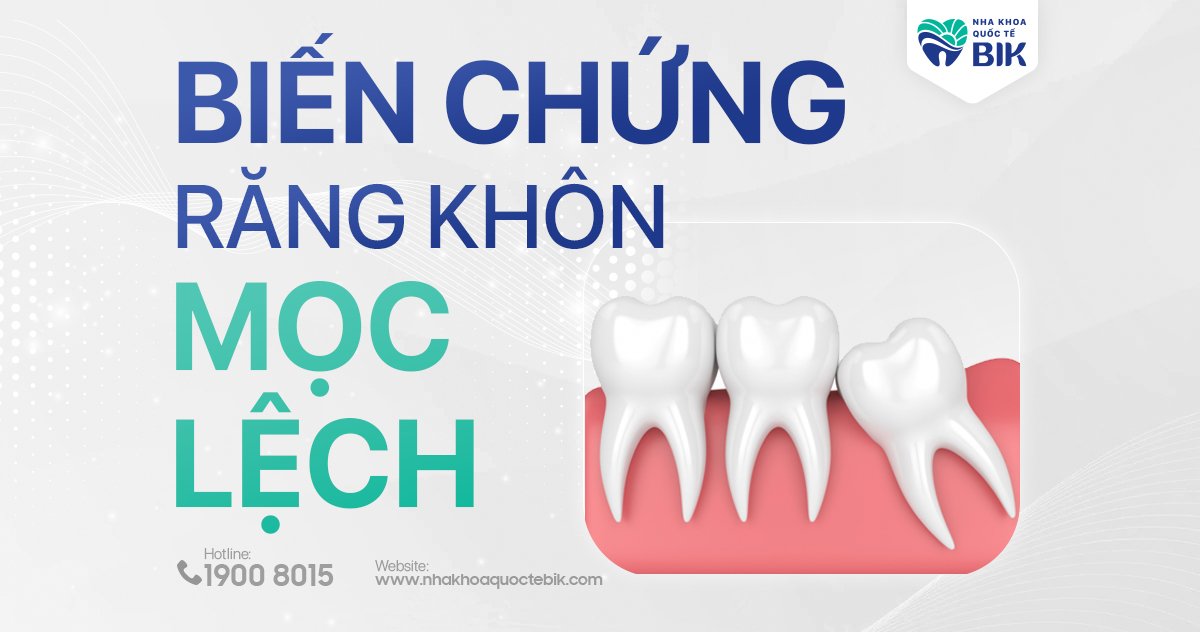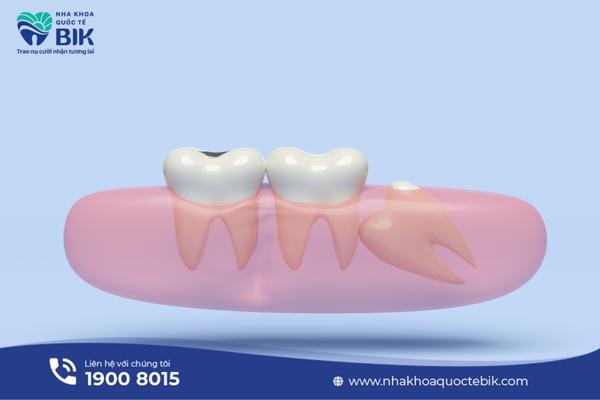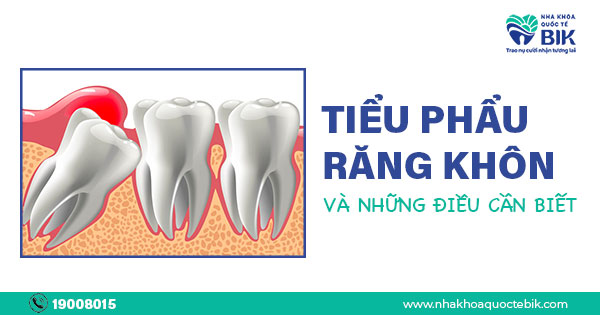Wisdom teeth are the last teeth to grow in the jaw, usually appearing when we reach adulthood. Some people go through this process easily, but there are also cases where wisdom teeth grow painfully, are uncomfortable, and can even lead to dangerous oral health problems. To overcome this situation, wisdom teeth extraction is often recommended by experts. However, many people still wonder whether it is okay not to have wisdom teeth extracted? BIK International Dentistry will answer this question through the article below.

What are wisdom teeth? What is their function?
To know if wisdom teeth need to be extracted, you need to determine which wisdom tooth is on your jaw. You may hear different names such as the 8th tooth, the 3rd molar, which are just different names for the last tooth on the jaw. Before the age of 17, it is rare for people to see this tooth grow. It usually appears from the age of 17 onwards.
Each adult can have up to 4 wisdom teeth, 2 on each jaw. When they grow, they often cause pain and discomfort. They are not useful in chewing food. Aesthetically, they do not affect the shape of the face.
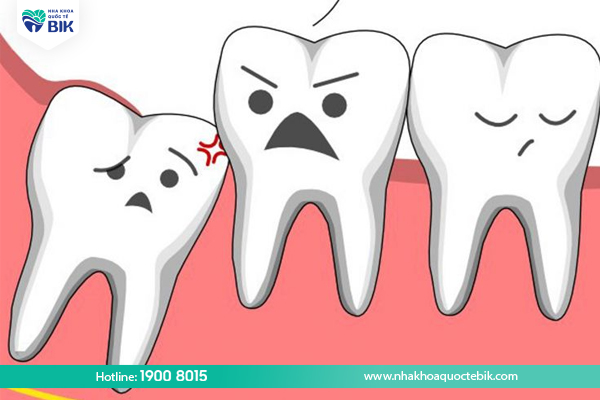
Is it okay not to remove wisdom teeth?
Is it okay not to remove wisdom teeth is a matter of concern for many people. According to statistics in the US, about 85% of adults have had their wisdom teeth removed.
According to experts, to decide whether to keep wisdom teeth or not, the following factors need to be considered:
- Wisdom teeth must be healthy, without problems such as tooth decay, gingivitis, periodontitis, pericoronitis, etc.
- Wisdom teeth have fully grown, not impacted, crooked or abnormally shaped.
- Wisdom teeth must grow straight and must have opposing teeth that fit together.
However, very few people have straight wisdom teeth. Most people have problems with wisdom teeth growing crooked, crowded, or even growing horizontally into adjacent teeth. If not extracted in time, these problems can cause many dangerous complications:
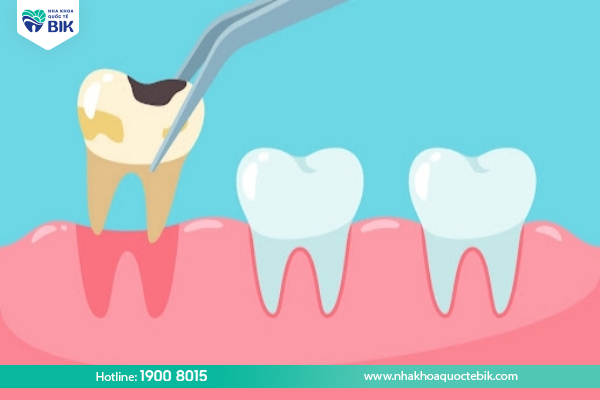
Causes tooth decay, gingivitis
Misaligned wisdom teeth will create small gaps with tooth number 7, making it easy for food to get stuck and difficult to clean. This creates conditions for bacteria to grow, causing oral problems such as tooth decay, gingivitis, etc.
Misalignment of adjacent teeth
Wisdom teeth usually start to grow at the latest from 18 to 25 years old, when the other teeth have all grown. Due to lack of space, wisdom teeth often push and crowd other teeth, causing misaligned jaws and misaligned bites. This affects the chewing of food. In some cases, wisdom teeth that grow under the gum line can push against the 7th tooth, causing pain and possibly damaging the structure of the teeth.
Periodontitis and Pericoronitis
When wisdom teeth do not grow in the right direction, they can create gaps between the teeth. If wisdom teeth grow in the deep corners of the jaw, cleaning will be difficult because toothbrushes and dental floss cannot reach them. Gradually, food gets stuck in there, causing bacteria to accumulate, causing gingivitis and periodontitis, making eating and drinking painful and uncomfortable.
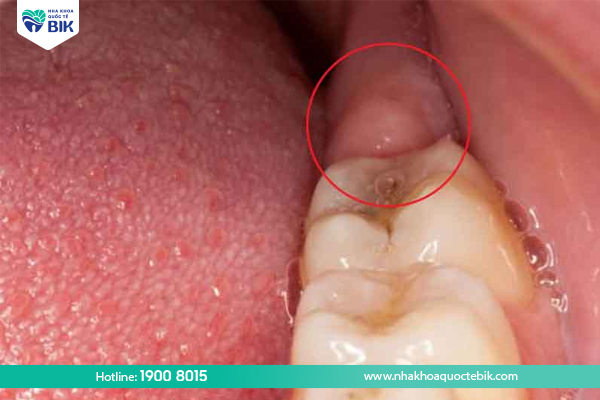
Reflex and sensory disorders
If the wisdom tooth grows crookedly and hits the nerve, it can cause the jaw to jam, leading to the inability to open the mouth wide. For some soft tissue areas such as the tongue and oral mucosa, there may be a feeling of numbness or even loss of sensation.
Causes jawbone cysts
The wisdom tooth growing under the gum causes damage to the adjacent tooth root and jawbone structure, which can lead to tooth root wear and the formation of a jawbone cyst. In fact, jawbone cysts are usually benign and slow-growing. If detected early, they can be completely cured without recurrence. However, if not treated promptly, they can cause jaw fractures or facial deformities.
Chronic pharyngitis
Dentists say that because wisdom teeth are located at the back, cleaning them is very difficult. If the teeth are not extracted promptly, bacteria can easily grow in the oral cavity, then attack the throat mucosa. This is the main cause of persistent cough and sore throat.

Should wisdom teeth be extracted?
Because they appear last, when all other teeth have fully grown, there is not much room for wisdom teeth to develop normally. This leads to wisdom teeth often causing oral problems such as prolonged pain, swollen gums, gingivitis, and can even grow crookedly, hitting other teeth, affecting the health of the gums and mouth. Although it causes a lot of trouble when it appears, many people still worry and wonder whether wisdom teeth need to be extracted or not…
Cases where wisdom teeth should be extracted
You will be recommended to remove your wisdom teeth if you experience one or more of the following signs:
- Wisdom teeth grow crookedly, tilted or horizontally, causing pressure, pain and affecting chewing food;
- A cyst appears around the wisdom teeth, causing damage to the jawbone;
- Wisdom teeth cause other teeth to be compressed or misaligned;
- The gums show signs of continuous infection, causing bleeding at the gums;
- Creating food stagnation with tooth number 7, leading to tooth decay.
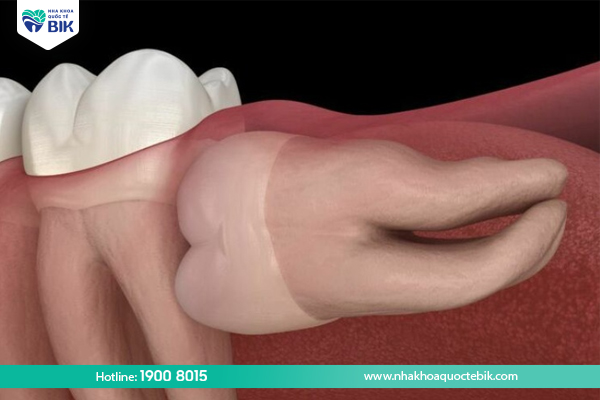
Cases where wisdom teeth should not be extracted?
If your wisdom tooth does not cause harm to the 7th tooth and other teeth, is normally shaped, grows straight and bites correctly, and if you do not have medical conditions such as blood clotting disorders, cardiovascular disease, diabetes, unstable blood pressure, or neurological disease, or are pregnant or breastfeeding, you can keep your wisdom tooth.
Deciding whether or not to have your wisdom teeth extracted is a personal decision. For accurate advice, you should visit and discuss with your dentist to ensure that your oral health is always best protected.

Complications that may occur after wisdom teeth extraction
When wisdom teeth grow, they can cause problems for oral health. If not cared for promptly, it can lead to complications such as:…
Pericoronitis:
Usually, when wisdom teeth grow crookedly, it will cause problems for the gums. The pericoronitis will become a place for food to accumulate. If not cleaned thoroughly, food can lead to bacteria and infection, causing folliculitis, swelling and pain.
Periodontitis:
When wisdom teeth grow in the correct position but have an abnormal shape, food can easily get stuck between the teeth, leading to the risk of tooth decay and periodontitis for the surrounding teeth.
Tooth decay:
Food stuck between the wisdom teeth and the 7th tooth for a long time can lead to the development of cavities in both teeth.
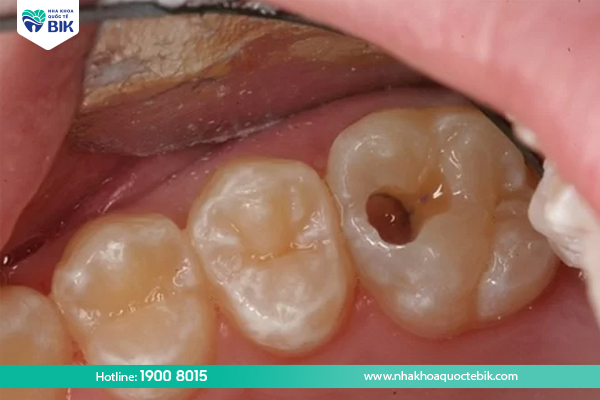
Cellulitis:
When the cells are inflamed, the cheeks may swell, causing pain when touched, difficulty eating and chewing, the mouth cannot open normally, the jaw feels stiff and pus may appear at the tooth root.
To safely extract wisdom teeth without leaving the above consequences, you should choose a reputable dental clinic for examination and treatment.
Notes after wisdom tooth extraction
To reduce recovery time and pain after tooth extraction, you need to follow the following care measures:
- After tooth extraction, you need to follow your doctor’s instructions on how to care for your mouth and comply with all instructions;
- To reduce pain, swelling, inflammation and heal wounds quickly, your doctor will prescribe medication for you. Buy the right medicine, take the right dose and at the right time as instructed;
- If the pain does not subside, consult your doctor. Never use pain relievers on your own;
- If there are any unusual signs such as continuous bleeding, severe swelling in the extraction area, fever, see a doctor immediately. To avoid dangerous complications;
- Please come back to the wound for a check-up according to the doctor’s appointment.
The above information will help you better understand whether wisdom teeth can be extracted or not, and the care process after tooth extraction. For the best advice and treatment, please contact or visit BIK International Dental Clinic for timely advice and treatment from a doctor.

